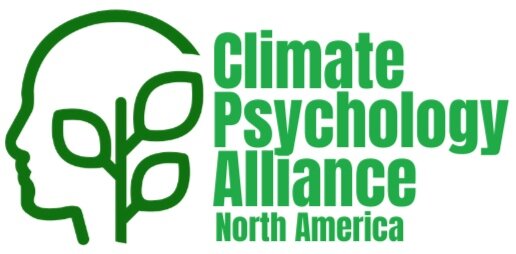Impacts, Adaptations, and Vulnerability:
Mental Health Practitioners' Response to the 2022 IPCC Report
edb3_16 / Adobe Stock
By: Naomi Mandsager Bartley, PhD, LPCC, Selin Nurgün, MS, Deborah Seabrook, PhD RCC MTA
Motivated. Despairing. Warrior. These are some of the ways that we describe our responses to the IPCC report that was released on February 22, 2022. While in many ways, this information was not new - the IPCC itself has been sounding the alarm on the impacts of the climate crisis for years - this most recent report contains the IPCC's most urgent message yet about the emergency we are in. The report concludes with this statement:
The cumulative scientific evidence is unequivocal: Climate change is a threat to human well-being and planetary health. Any further delay in concerted anticipatory global action on adaptation and mitigation will miss a brief and rapidly closing window of opportunity to secure a liveable and sustainable future for all. (very high confidence)
How can we as mental health practitioners of the Climate Psychology Alliance North-America respond in the midst of this stark reality? Our response is organized according to the same three themes as the 2022 IPCC report: Impacts, Adaptations, and Vulnerability.
Impacts
We are each impacted by this report. The science is clear and direct, telling the story of our planet in peril. The report also represents a failure of leadership across all levels - and particularly at the national and international levels - to remotely address the climate crisis. It also represents the inability of the general public to take in the severity of the issue or to push for the urgent transformational actions needed. We know that we are not alone in feeling these impacts of this report. In response to these impacts, we invite ourselves and our communities to consider:
Are our current theories and practices adequate for navigating contemporary realities?
How might we evolve our associations, theories, practices, and education to meet contemporary realities?
Does our understanding of "mental health" need a re-frame amidst the climate crisis?
How can we encourage and support each other as climate-aware therapists?
We will speak to how we might adapt to address these impacts of the IPCC report for us as climate-aware therapists in the next section.
Adaptations
kondratuk / Adobe Stock
Adapting our diverse theories and practices to meet the mental health challenges of climate change can be a daunting yet exciting possibility.
We can continue to name the limitations of behavioral therapeutic models rooted in individualism and maintaining the status quo. Many traditional frames for therapy are not conducive to an ongoing crisis state, for example, we no longer have the luxury of time that is often required in long- term psychoanalytic work.
We can continue adapting psychotherapy, counseling, psychology, and other mental health professions in the following ways:
Collaborating with allied professionals such as social scientists, embodiment teachers, organizers, and activists to better support communities in need.
Bringing in other models and methods that might be more directive such as psychoeducational and somatic work.
Using the creative arts therapies as a path towards somatic self-expression, connecting, coming together, and being generative in the face of death.
Integrating environmental advocacy through public educational and motivational practices.
Formalizing our understanding of ecological knowledge, including our existential place within the natural ecosystem.
The IPCC report forces us to face the urgency of the situation and requires us to make fast changes to how we approach mental health and well-being so that we can meet the rapidly-changing needs of our communities.
Vulnerability
Our discussion of the IPCC report led us to how vulnerable the mental health of the general public is in this context. We know that avoiding the bad news that the climate crisis delivers is a natural psychological response. We are also aware that the people who are most vulnerable to mental health impacts of the climate crisis are often those with the least access to mental health care. To put it another way, therapy and mental health is political, and access to therapy is currently inequitable. We can continue to meet the needs presented by these vulnerabilities in mental health care in the following ways:
Recognizing, holding, and naming the weight of living within interlocking systems of oppression that the climate crisis exacerbates, including racism, sexism, and ableism.
Actively embodyıng justıce by showing up for people as they navigate numerous systemic pressures at once.
Continuing to develop core competencies/skills/processes we need as therapists to support not only our current clients, but to reach out to our communities and society so that the general public is more able to cope and adapt to the climate crisis.
Conclusion
Photo Credit: Jenni Silverstein
Where mental health care and therapy may have taken a more receptive posture in the past, we suggest that a collective response to this report invites an ongoing repositioning of mental health care aligned with more active postures of outreach, resisting, advocating, and defending.
The IPCC report affirms the importance of the CPA-NA's mission. In this blog, we have considered ways that mental health practitioners might continue to evolve. At the same time, we see the beauty in current practices and notice our own resistance to changing. This is an ongoing conversation wherein mental health practitioners will continue to adapt to make our theories and practices sustainable in the climate crisis. We look forward to continuing to hear and learn from a diversity of voices as we continue to move together towards this more sustainable future in mental health care and beyond.




